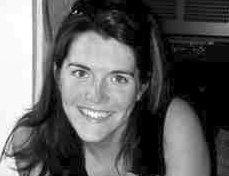
It seems that every time I turn around someone is talking about Chris McCandless, a young man who starved to death 15 years ago in an abandoned Fairbanks city bus.
Although he didn’t know it at the time, McCandless’ story would eventually inspire the best selling novel “Into the Wild” and a Hollywood film by the same name. Both tell the story of a 24-year old honours graduate who died alone in the Alaskan wilderness. They paint a picture of a young man determined to live free of the trappings of modern society.
McCandless called himself ‘Alexander Supertramp” and donated his $20,000 plus trust fund to charity after leaving his family no word of his whereabouts. Much of his story was chronicled through journals during his two-year journey through 30 states with almost no money and little food.
The story isn’t a Walt Disney affair. McCandless’s survival skills are an indication that he was a middle class boy who memorized Thoreau but failed read his Boy Scout manual. Still McCandless was extreme – he was counter cultural – and we are addicted.
It seems a bit ironic that some obscure student has become the fodder of Hollywood. In his quest to live the unmediated life, McCandless has become an economic driver. His bus in Alaska is now a pop culture attraction and Hollywood has come calling. But there must be a reason his story is so fascinating.
McCandless’s journey seems to have a dramatic effect on people. It questions the line between heroic martyrdom and psychopathic self-destructiveness. The meaning of his life has been fiercely argued and the debate seems to exist in two camps. Either McCandless was a visionary seeker who dared to dream or he was a selfish unprepared fool who fundamentally misjudged the wilderness.
If the amount of pilgrims who visit the McCandless bus is any indication, we want the idealistic portrait to be true. We want the Shakespearian tragedy rather than a black comedy of fatal errors.
I reminded of an essay by Bono, U2’s singer and campaigner to end Third world debt. He admits to being a fan of the psalmist David. He calls him a star, the Elvis of the Bible. He also admits that it’s not clear how many psalms David really wrote.
“Some scholars suggest that the royals never dampened their nibs and that there was a host of Holy Ghost writers. Who cares? I didn’t buy Leiber and Stroller – they were just his songwriters. I bought Elvis,” Bono wrote.
For many people McCandless is their Elvis rather than a naïve American kid. McCandless’s story presents us with an alternative to the middle class life – his life was lived counter culturally. For Whistler’s Marc Paterson, McCandless is his proverbial King of Rock and Roll. Paterson recently retuned from a pilgrimage to the Alaskan bus fueled by a 10-pound bag of rice and his thumb.
The story seems particularly poignant in Whistler because many residents are on their own McCandless type journey. From the 30 year old ski bum vowing never to give up 100 days of skiing a year to the organic farmers. Whistler is full of people living alternatives to a life within the system.
So people talk about McCandless because he dared to live differently – an anti-materialistic rock star. I admit that I’m drawn to the people who live outside the norm, whether it’s the Christian who walks out the gospel or hippy growing organic vegetables.
We are attracted to the difference because somehow we can sense there is more to this life than Britney Spears and McDonalds. We want to buy Elvis too.
